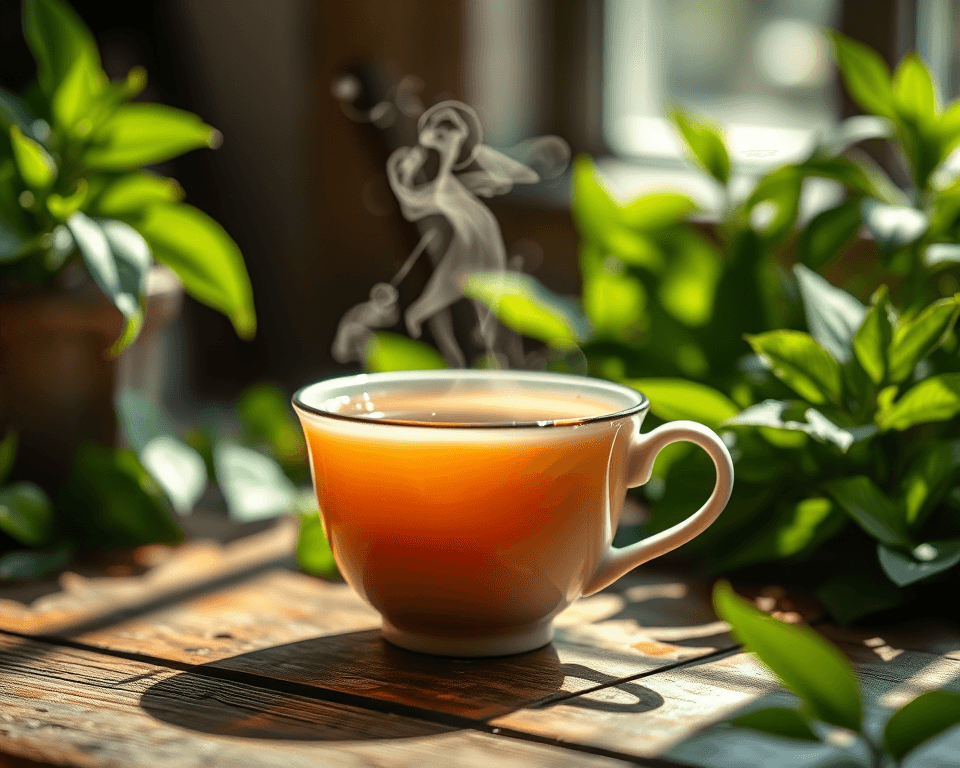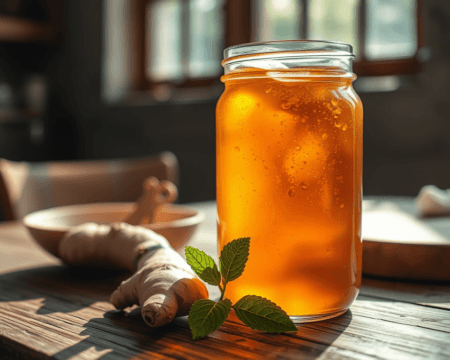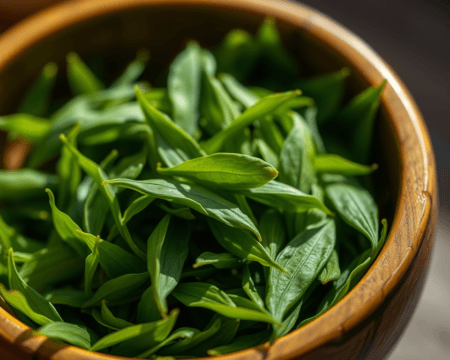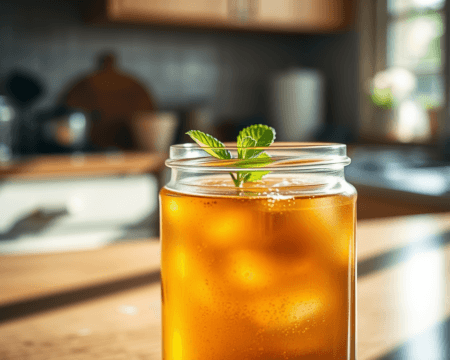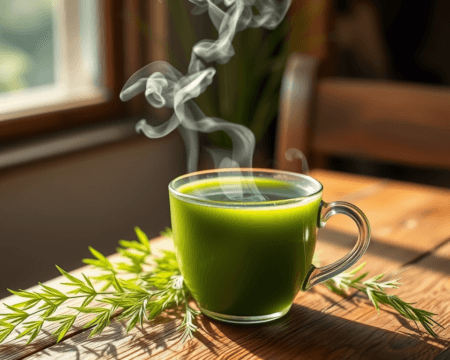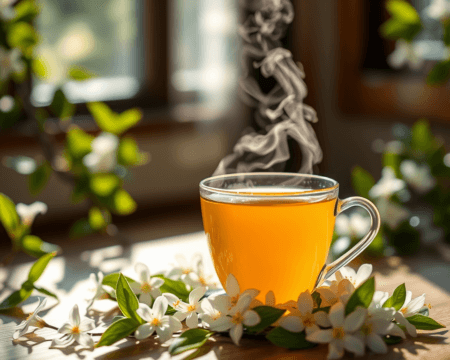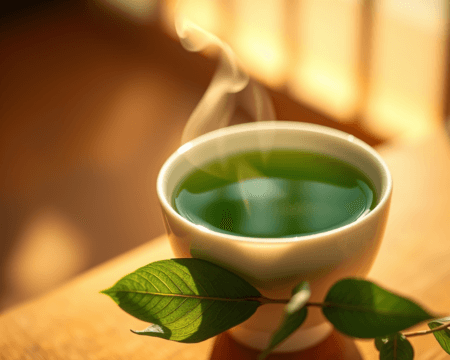Have you ever brewed a cup of tea and found it to be way more bitter than you expected? It’s like biting into a lemon, but without the refreshing zing. I’ve been there, and it used to drive me crazy. But it turns out, understanding tea bitterness isn’t rocket science; it’s more like chemistry mixed with a sprinkle of technique. Get ready, because we’re going to break down the reasons your tea might taste bitter, tips for avoiding it, and what you can do to make every cup your new favorite.
Key Takeaways
- Bitterness in tea comes from specific chemical compounds.
- Different tea varieties have varying levels of bitterness.
- Brewing methods, such as water temperature and steeping time, significantly impact flavor.
- Using high-quality water can enhance your tea experience.
- Adjusting brewing techniques can help reduce bitterness and improve flavor.
What Makes Tea Bitter?
Understanding the bitter taste in tea means getting cozy with some chemistry. You see, there are certain key chemical compounds that can throw your flavor balance off the rails when it comes to tea. We’re talking about tannins, catechins, polyphenols, and even alkaloids. These aren’t just fancy words—they’re responsible for the astringency that can leave that unpleasant, dry feeling in your mouth.
Let’s break it down:
– Tannins are plant-based compounds found in tea. They contribute to bitterness and can also give tea that drying effect. You might notice this more in black teas, where higher tannin levels are common.
– Catechins, particularly prevalent in green tea, offer a range of flavors but can also turn bitter if over-extracted during brewing.
– Polyphenols are antioxidants that add complexity to tea but can also intensify bitterness.
– Alkaloids like theine (caffeine in tea) can hint at bitterness depending on the specific blend.
So, when you’re crafting your perfect cup, remember that these compounds can either elevate your drink experience or drag it through the mud, depending on how they’re prepared.
Bitterness Levels in Different Types of Tea
Not all tea is created equal. There’s a whole spectrum of flavors across various tea types, and bitterness levels vary significantly.
- Green tea: Generally milder with a fresh, grassy note. Think delicate flavors—bitter can sneak in if over-steeped.
- Black tea: Usually has a stronger flavor profile with much higher bitterness due to more oxidation.
- Oolong tea: A cross between green and black, offering complex aromatics and lower bitterness.
- Herbal tea: Not technically tea by the purest definition, but many herbal blends can be beautifully aromatic without significant bitterness.
- White tea: The least processed, known for its light, sweet flavors with minimal bitterness.
Knowing these differences helps you choose the right tea for your taste profile and prepares you to tackle any bitterness head-on.
Brewing Methods That Affect Tea Bitterness
Brewing isn’t just about throwing tea leaves in hot water—it’s a delicate dance of temperature, time, and water quality.
Water Temperature and Brewing Time
Temperature control plays a huge role in the flavor extraction process. Scalding hot water can unleash those bitter compounds and ruin your carefully chosen brew.
- Green tea: Aim for 160-185°F. Steep it for 2-3 minutes to capture those delicate flavors without extracting too much bitterness.
- Black tea: Go for 200-212°F. You can steep it longer, about 3-5 minutes, but don’t let it linger too long or you’re inviting bitterness to the party.
- Oolong tea: 185-205°F is your sweet spot. A 3-5 minute steep usually works wonders without the harshness.
- Herbal tea: 212°F is best. Depending on the blend, steeping can vary from 5-10 minutes, with less risk of bitterness.
- White tea: Settle for a gentler 160-185°F and steep for 4-5 minutes to let those subtle flavors shine.
Properly managing brewing time and temperature ensures you’re becoming a maestro of flavor, not just mixing magical potions.
Quality of Water Used for Brewing
If you think any old water will do, you’re kidding yourself. Water quality massively impacts taste. Using hard tap water can add minerals that clash with your tea and muddy the flavor profile.
- Aim for filtered or bottled water with a neutral pH.
- High mineral content can enhance flavor clarity, but avoid overly hard water or distilled water, which can strip away key flavor components.
Your water is the canvas; make sure it’s not dull paint!
Practical Tips to Avoid Bitterness in Tea
Okay, so we’ve tackled the science—now it’s time to get practical. Here’s the deal: with a little thoughtfulness, you can dodge bitterness like you would dodge that random email trying to sell you a timeshare.
Choosing the Right Tea Varieties
Picking the right tea is like assembling a dream team. You wouldn’t choose a bitter tea if you’re after smooth vibes, right?
- If bitterness isn’t your jam, go for low bitterness teas like blends of herbal options or white tea.
- Looking for something with more punch? Choose a mellow oolong or a mild green tea.
It’s all about figuring out what tickles your taste buds—just remember: your personal taste matters.
Brewing Adjustments and Techniques
Simple brewing tweaks can be your best friends. Here’s the scoop:
- Shorter steeping times can significantly reduce bitterness. If you’re feeling wild, try cold brewing! It’s a super smooth way to enjoy tea without that sharp bite, and it’s perfect for summer.
- Experiment with re-steeping. High-quality leaves can be steeped multiple times—just adjust your water temperature and time for each infusion.
A little creativity with your brewing techniques can turn bitterness into bliss.
Enhancing Flavor Without Adding Bitterness
Sometimes you want to jazz things up! Adding flavor components can enhance your tea experience if you choose wisely.
- Flavored teas like Earl Grey or Jasmine Infusion can offer sweetness without bitterness.
- If you’re feeling adventurous, consider herbal additives like mint or ginger.
- A dash of honey, agave, or a sprinkle of cinnamon can elevate your cup to a whole new level of deliciousness.
Not every add-in will work, so it’s worth experimenting until you find your perfect match.
Summary of Key Insights on Tea Bitterness
Beyond the basic chemistry, you’re looking at sensory experiences that change the game. Everything from storage conditions to the freshness of tea leaves affects how bitter your cup can turn out.
Factors Beyond Chemical Compounds
Tea is more than just the sum of its parts. Environmental cues and how you store tea matter, too.
- Keep it in an airtight container, away from sunlight and moisture.
- Expired tea? Forget about it! Fresh tea leaves pack more flavor punch and less bitterness.
It’s all about creating an environment where your teas can thrive.
User Experiences and Recommendations
Don’t just take my word for it; talk to fellow tea lovers, join online communities, or hang out at local tea shops. There’s a wealth of user-generated content like personal anecdotes and brewing success stories to guide your journey.
You’ll find that tea enthusiasts love sharing insights about their brewing journeys—trust me, you’re not alone in this! Embrace the exploration and consider every cup a little adventure.
Understanding and avoiding bitterness in tea is like unlocking a treasure chest of flavors. With the right knowledge and techniques, you’ll brew a cup that makes every sip a moment worth savoring. Happy brewing!
Frequently Asked Questions
What causes bitterness in tea?
Bitterness in tea primarily stems from chemical compounds such as tannins and catechins. These compounds can vary significantly among different tea types and are influenced by factors like processing, brewing time, and temperature.
How can I reduce bitterness in my tea?
To minimize bitterness, try lowering the water temperature and reducing the steeping time. Using high-quality, filtered water can also help enhance flavor without the harshness associated with minerals in tap water.
Are some tea varieties naturally less bitter than others?
Yes, certain tea varieties, such as white and green teas, typically have lower bitterness levels compared to blacks or oolongs. Factors like the tea plant’s variety, origin, and processing methods contribute to these differences.
Does the quality of water affect the bitterness of tea?
Absolutely. The mineral content and overall quality of your water can significantly alter the taste of tea. Using soft, filtered water can help produce a smoother, more flavorful cup with reduced bitterness.
What brewing techniques can enhance the flavor of my tea?
Experimenting with different brewing techniques, such as altering water temperature, steeping time, and water-to-tea ratio, can enhance flavor. Additionally, pre-warming your teapot or cup can help maintain optimal brewing conditions.
Is it possible to salvage over-steeped tea?
If your tea becomes overly bitter due to steeping too long, you can dilute it with a bit of hot water or add milk or a sweetener to balance the flavors. This adjustment can help mask bitterness.
How long should I steep different types of tea?
Steeping times vary among tea types; typically, green tea should steep for 2-3 minutes, black tea for 3-5 minutes, and herbal teas for 5-7 minutes. Following specific guidelines can prevent bitterness.
Can flavored teas be bitter as well?
Flavored teas can also exhibit bitterness, particularly if they contain strong bases like black tea or are over-brewed. The added flavors may mask some bitterness, but the underlying tea can still influence the overall taste.
How does the origin of tea affect its bitterness?
The origin of tea plays a crucial role in its flavor profile. Teas from warmer climates often have a stronger flavor and higher bitter compounds, while those from cooler regions may be milder and less bitter.
Why does the processing method impact tea bitterness?
Processing methods such as oxidation and fermentation affect the chemical composition of tea leaves. For instance, fully oxidized teas typically have a stronger, bitter flavor compared to lightly processed or unoxidized varieties like green or white tea.




